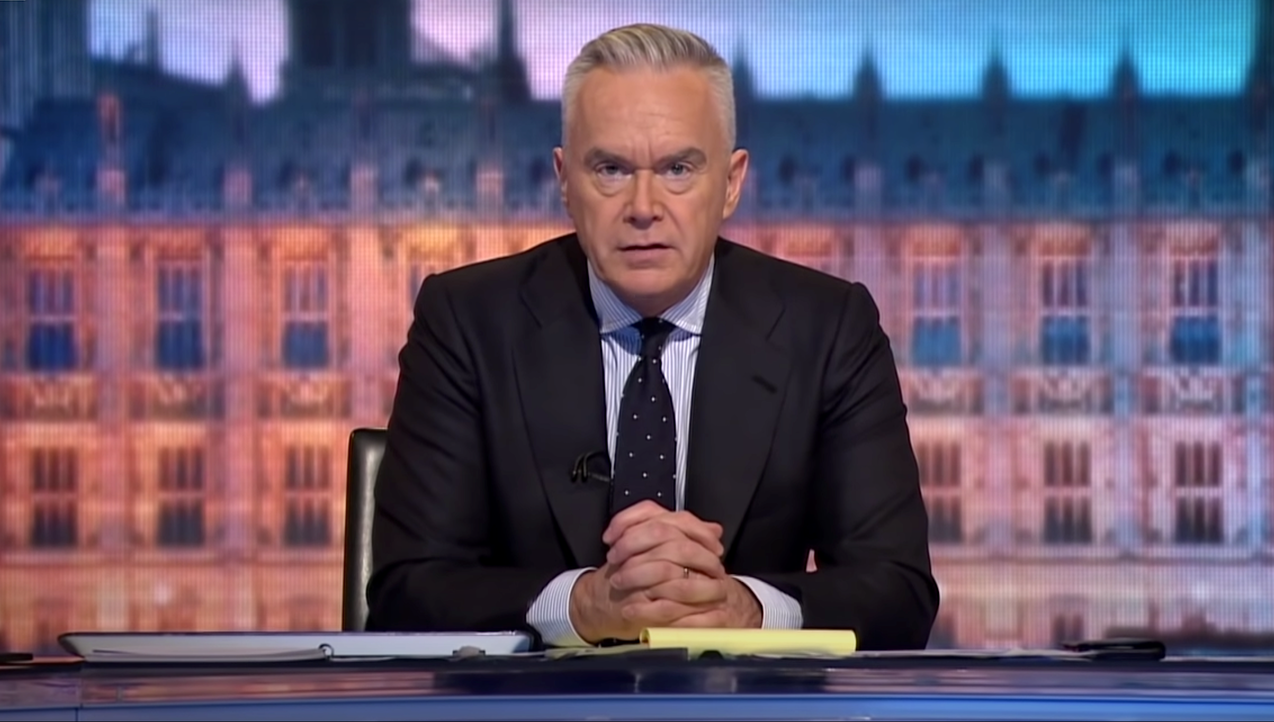In a recent development that has sent shockwaves through the media industry, the British Broadcasting Corporation (BBC) is considering unprecedented steps to recover pay from former newsreader Huw Edwards. This move comes in the aftermath of Edwards’ guilty plea to accessing indecent photos of children, raising serious questions about accountability and financial responsibility within the UK’s national broadcaster.
The Unfolding Situation
Tim Davie, the BBC’s Director General, addressed the issue head-on during a BBC news segment on August 1, 2024. Acknowledging the complexity of the situation, Davie stated that while reclaiming employee pay is typically “very difficult… nigh on impossible” and “legally challenging,” the corporation is committed to exploring “all options” available.
This statement follows Edwards’ arrest in November 2023 and subsequent resignation in April 2024, citing medical issues. Prior to his departure, Edwards was among the BBC’s highest-paid presenters, with an annual salary exceeding £479,999 – a figure that had seen a £40,000 increase from the previous year.
Legal and Contractual Implications
The potential for pay recovery hinges on specific contractual provisions, according to Jim Moore, an employee relations expert at Hamilton Nash HR consultancy. Moore elucidates:
“Employers can lawfully reclaim sums paid to employees, but only if the employment contract has a specific clause that allows for this. It’s common for contracts to mention deductions for overpaid wages, for example, or for lost or damaged equipment that the company provides. There might also be a clause for recovering a portion of a sign-on bonus if someone leaves within a year or two of joining.”
This insight underscores the importance of thorough employment contracts in safeguarding organizations against unforeseen circumstances.
Public Scrutiny and Government Oversight
The BBC’s handling of the situation has drawn attention from the highest levels of government. Culture Secretary Lisa Nandy has voiced concerns about safeguarding practices at the BBC and questioned the management of taxpayer funds. With the current BBC licence fee set at £169.50 per year for UK households, there’s heightened scrutiny on how public money is being utilized and protected.
Implications for HR Practices
This high-profile case serves as a stark reminder of the critical role that HR departments play in crafting employment contracts and policies. Key takeaways for HR professionals include:
- Robust Contract Clauses: Ensure employment contracts include comprehensive clauses that protect the organization’s interests, including provisions for pay recovery under specific circumstances.
- Regular Policy Reviews: Conduct frequent assessments of HR policies to align with current legal standards and organizational needs.
- Transparent Communication: Maintain clear channels of communication with employees regarding contractual obligations and potential consequences of misconduct.
- Ethical Considerations: Balance the need for organizational protection with fair treatment of employees, ensuring that any pay recovery efforts are justified and proportional.
- Legal Compliance: Stay informed about employment law developments to ensure that contract clauses and recovery efforts remain within legal boundaries.
The Broader Impact
The BBC’s exploration of pay recovery options in this case could set a precedent for how public institutions and private organizations alike handle similar situations in the future. It highlights the delicate balance between employee rights, organizational accountability, and public trust.
As this situation continues to unfold, it will likely spark ongoing discussions about:
- The effectiveness of current safeguarding measures in media organizations
- The balance between privacy and accountability for public figures
- The role of employment contracts in mitigating reputational and financial risks
- The responsibilities of publicly funded institutions towards taxpayers
Looking Ahead
As the BBC navigates this challenging terrain, the outcomes of their efforts to recover pay from Huw Edwards will be closely watched by HR professionals, legal experts, and the public alike. This case may well influence future practices in employment contract drafting, misconduct handling, and financial accountability across various sectors.
The situation serves as a powerful reminder of the importance of proactive HR strategies and robust contractual frameworks in protecting organizational interests while maintaining ethical standards and public trust.
As developments continue to unfold, organisations would do well to review their own policies and procedures, ensuring they are well-prepared to handle complex situations that may arise in the ever-evolving landscape of employment relations and public accountability.
Vadim Kouznetsov is a distinguished entrepreneur and the visionary founder and CEO of JobXDubai.com, the UAE’s rapidly expanding job board. Renowned for his expertise in bridging the gap between job seekers and employment opportunities, Vadim has become a leading authority in the recruitment and job market of Dubai.

